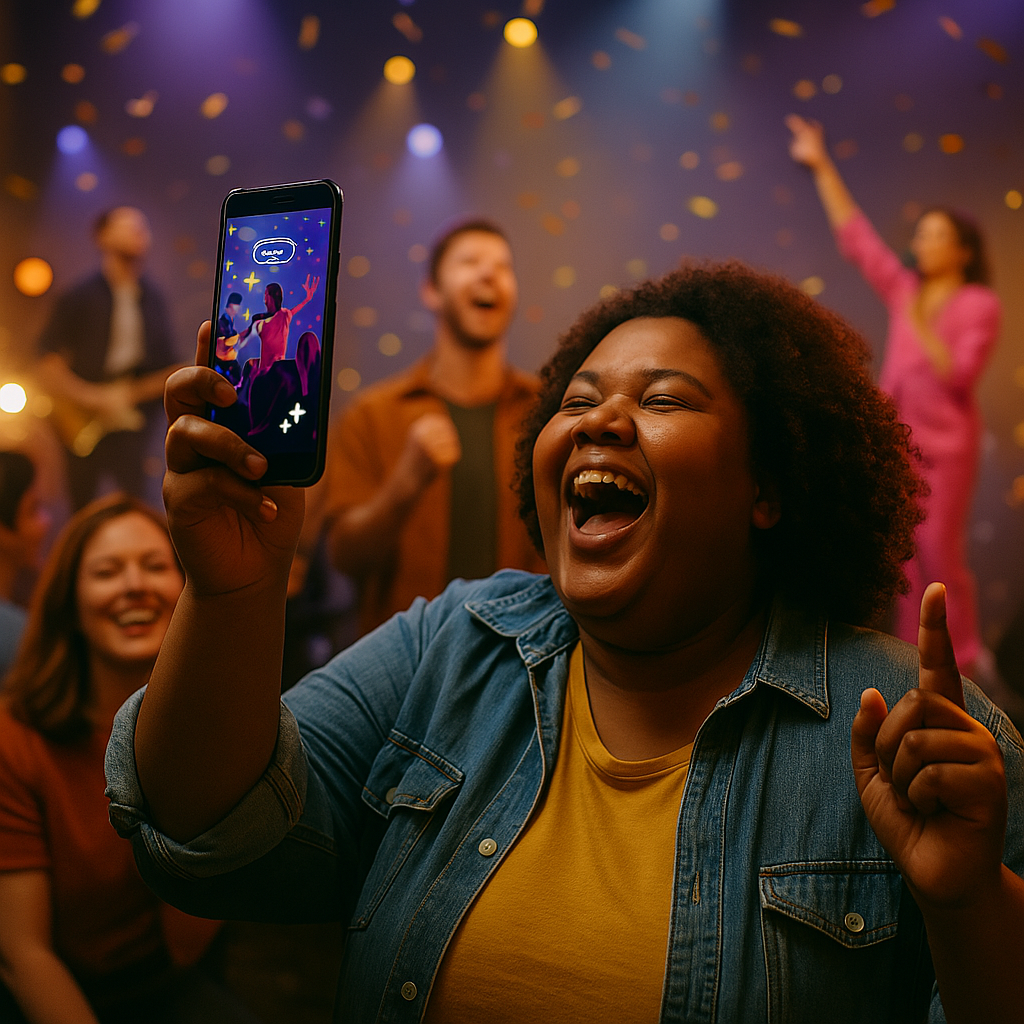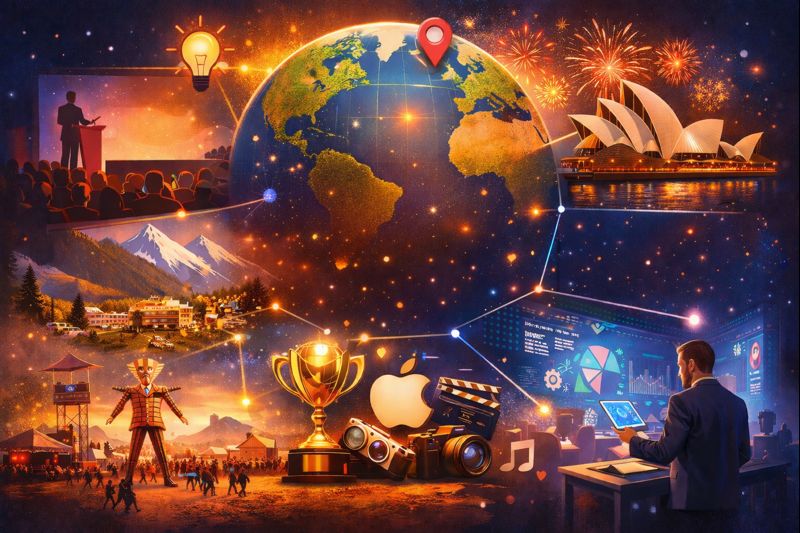In a world where attention spans are measured in seconds, viral content has become one of the most powerful tools for promoting events. It doesn’t require a huge budget — but it does need ideas, emotion, and a strong connection with your audience. Viral content isn’t just watched — people want to share it.
But what makes content go viral for events 📱? How do you reach your audience’s hearts (and feeds)? Let’s break it down — with examples, formats, and proven techniques🚀.
🎯 1. What Is Viral Content?
It’s content that evokes such a strong reaction (emotional, funny, personal, or surprising) that people share it on their own — no pressure.
📌 Key features of viral content:
✔️ Emotion (laughter, tears, surprise, inspiration)
✔️ Easy to consume (short, vivid, clear)
✔️ Opportunity to engage (“I want to be part of this”)
✔️ Relevance and context
✔️ A “wow” element or something worth showing friends
📱 2. Formats That Fly
📹 Short videos (15–60 sec.)
– Behind the scenes
– Guest reactions
– Humorous preparation
– Mini-trailers with eye-catching cuts
💡 Example: a “from chaos to wow” montage — messy morning coffee with staff, then an elegant hall, guests in formalwear, live orchestra.
🎭 Interactives and Challenges
– Dance flash mobs
– “Show how you prep for the event”
– Event-themed meme marathon
💡 Case: Before a fashion show, a brand launches a TikTok challenge: “Walk like a model” — winner gets a VIP invite.
📸 Photobooths People Want to Post
– Surreal art installations
– Giant letters with the event name
– Floating props, 3D illusions, interactive displays
💡 Case: At a marketing conference, a photo zone simulates a “storm of paper reports,” with guests holding signs like “I survived Q4.”
💥 3. Ideas That Definitely Work
✨ A Surprise on Stage or in the Room
– Unexpected flash mob
– Secret guest appearance
– A ‘wow’ moment no one saw coming
💡 Example: During a business forum, a famous comedian takes the stage for 5 minutes of jokes about Zoom calls — the clip goes viral on LinkedIn.
😂 Humor and Self-Irony
– Sketches about event organizer life
– “How NOT to prep for a conference”
– Real fails and funny behind-the-scenes
💡 Example: A mini-series “The Day Before the Event” — actors reenact chaos: late catering, missing badges, organizers with puffy eyes.
🧠 Quotes, Insights, Slides — but Beautiful
– “Word of the Day” from the stage
– Micro-interviews: “What does success mean to you?”
– Slide screenshots with “One Idea — One Screen” style
💡 Example: A design card with a speaker quote over their photo — Instagram-ready, trustworthy, and easy to share.
🧩 4. Involve Guests in Content Creation
📌 What works:
✔️ Live polls and quizzes (via apps or Instagram Stories)
✔️ “Guest Gallery” — vote for best photo
✔️ Mechanics: “Film the event — get a gift”
✔️ Interactive map: “Where are you from?”
💡 The more content guests create, the wider the reach and stronger the impact.
🧠 5. Inspiring Real-Life Cases
🟣 Cannes Lions: Guests post award-winning creative cards in real time. Everyone watches: “Who’ll win?” — and shares ahead of time.
🟡 Web Summit: In-app feature lets users build their own highlight reel.
🟢 Burning Man: Viral content comes from participants — hundreds of reels, photos, and mini-docs.
🔵 TEDx: Key takeaways turn into sleek quote-cards that spread fast on social media.
✅ 6. Tips for Promoting Viral Content
✔️ Film vertically — for Stories, Reels, TikTok
✔️ Keep videos short and purposeful (15–30 sec)
✔️ Simplicity wins: a backstage joke often beats a polished promo
✔️ Add intrigue: “Guess who showed up at our event…”
✔️ Partner with bloggers and micro-influencers — they know how to pack emotions
📌 Conclusion
Viral content isn’t random — it’s the result of bold ideas, smart packaging, and respect for the audience. If your event sparks emotion, makes attendees feel like part of a story, and leaves them thinking “I need to show this” — success is guaranteed.
So, how about sharing this content and make it viral?


